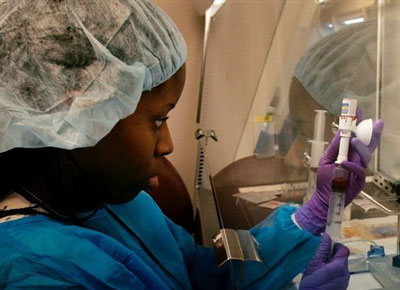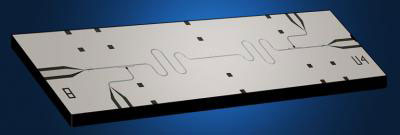The Swiss NanoConvention 2009 will offer an excellent opportunity for fascinating, controversial discussion, and you are invited to Zurich to be a part of it.
Jun 29th, 2009
Read more
The book, entitled Bionanodesign, discusses the design of nanostructures using Nature for inspiration. The main mission of the publication is to satisfy the demands that motivate the search for first principles in engineering biologically inspired nanostructures.
Jun 29th, 2009
Read more
 Tim Weihs of the Johns Hopkins University Whiting School of Engineering will be the next guest speaker for the Institute for NanoBioTechnology (INBT) Professional Development Seminars on July 8.
Tim Weihs of the Johns Hopkins University Whiting School of Engineering will be the next guest speaker for the Institute for NanoBioTechnology (INBT) Professional Development Seminars on July 8.
Jun 29th, 2009
Read more
Within the area of nanotechnology, the study of nanoscale and bio-inspired integrated computing has attracted major attention in recent years. This is the first book to specifically focus on the computing aspects of nanotechnology for engineers, computer engineers, and biomedical engineers who are interested in designing faster and denser computing architectures and algorithms.
Jun 29th, 2009
Read more
Brain Tumour Foundation of Canada is assisting Canadian research nationally in the mission to find a cause of and cure for brain tumours with the announcement of its annual grants-in-aid program recipients.
Jun 29th, 2009
Read more
 Australian researchers are set to begin human trials of a tiny nano-cell that acts as a "Trojan horse" against cancer cells, a breakthrough they say may curb the need for debilitating chemotherapy.
Australian researchers are set to begin human trials of a tiny nano-cell that acts as a "Trojan horse" against cancer cells, a breakthrough they say may curb the need for debilitating chemotherapy.
Jun 29th, 2009
Read more
The International Union of Pure and Applied Chemistry (IUPAC) has officially recognised the element 112 as a new element.
Jun 29th, 2009
Read more
Award-winning filmmaker premieres film at SEMICON West, with introduction by MEMS Industry Group.
Jun 29th, 2009
Read more
Umfassende Informationen zu Nanopartikeln und ultrafeinen St�uben bietet das Institut f�r Arbeitsschutz (BGIA) der Deutschen Gesetzlichen Unfallversicherung kostenlos in einem neuen Internetportal an.
Jun 29th, 2009
Read more
Post-graduate scholarship is aimed at students in the schools of Electrical and Electronic Engineering and Electrical and Computing Engineering.
Jun 29th, 2009
Read more
A team at the University of Nebraska-Lincoln has figured out a possible way to observe and record the behavior of matter at the molecular level. That ability could open the door to a wide range of applications in ultrafast electron microscopy used in a large array of scientific, medical and technological fields.
Jun 29th, 2009
Read more
How can you weigh a single atom? European researchers have built an exquisite new device that can do just that. It may ultimately allow scientists to study the progress of chemical reactions, molecule by molecule.
Jun 29th, 2009
Read more
Minute antibacterial particles destroy drug-resistant germs.
Jun 28th, 2009
Read more
 A team led by Yale University researchers has created the first rudimentary solid-state quantum processor, taking another step toward the ultimate dream of building a quantum computer.
A team led by Yale University researchers has created the first rudimentary solid-state quantum processor, taking another step toward the ultimate dream of building a quantum computer.
Jun 28th, 2009
Read more
Using a sophisticated mathematical model that relates a wide variety of biological variables to disease progression, a research team has shown that accounting for the shape and physical characteristics of the tumor margin and invasiveness of the tumor accurately predicts how a particular tumor will develop and metastasize.
Jun 27th, 2009
Read more
Quantum dots (QDs), nanoparticles that shine with extraordinary brightness when excited by light energy, have shown promise as new tools for detecting cancer at its earliest appearance, but concerns about potential toxicities have limited their clinical development. Researchers at the University of Buffalo may have found an answer to this limitation with their development of a new way to create QDs. Their work comes at an opportune time, because a team of investigators from the University of Texas at Arlington (UTA) has shown that QDs can function as nanoscale thermometers to guide the numerous nanoparticle-based thermal therapies being developed to treat cancer.
Jun 27th, 2009
Read more




 Subscribe to our Nanotechnology News feed
Subscribe to our Nanotechnology News feed